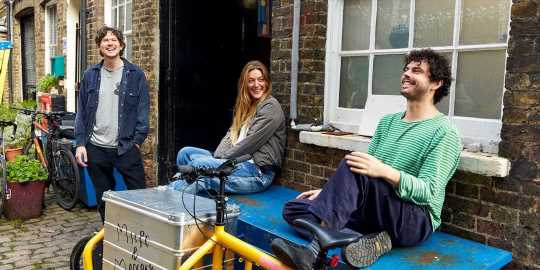To some, it might seem like an unusual sentiment for a designer to be obsessed with perfecting their product’s demise. Morbid, almost. But for London-based studio Mitre & Mondays, it’s become a unique selling point.
Together, the team of three (Freya, Josef, and Finn) have developed a way of working that they describe as “designing for disassembly”. Simply put, this involves taking thoughts around circularity to the next level, and ensuring that each part of their process is serving the object’s end of life. If their latest string of commissions, and a long-standing relationship with the incubator Atelier100 are anything to go by, their approach seems to be proving successful.
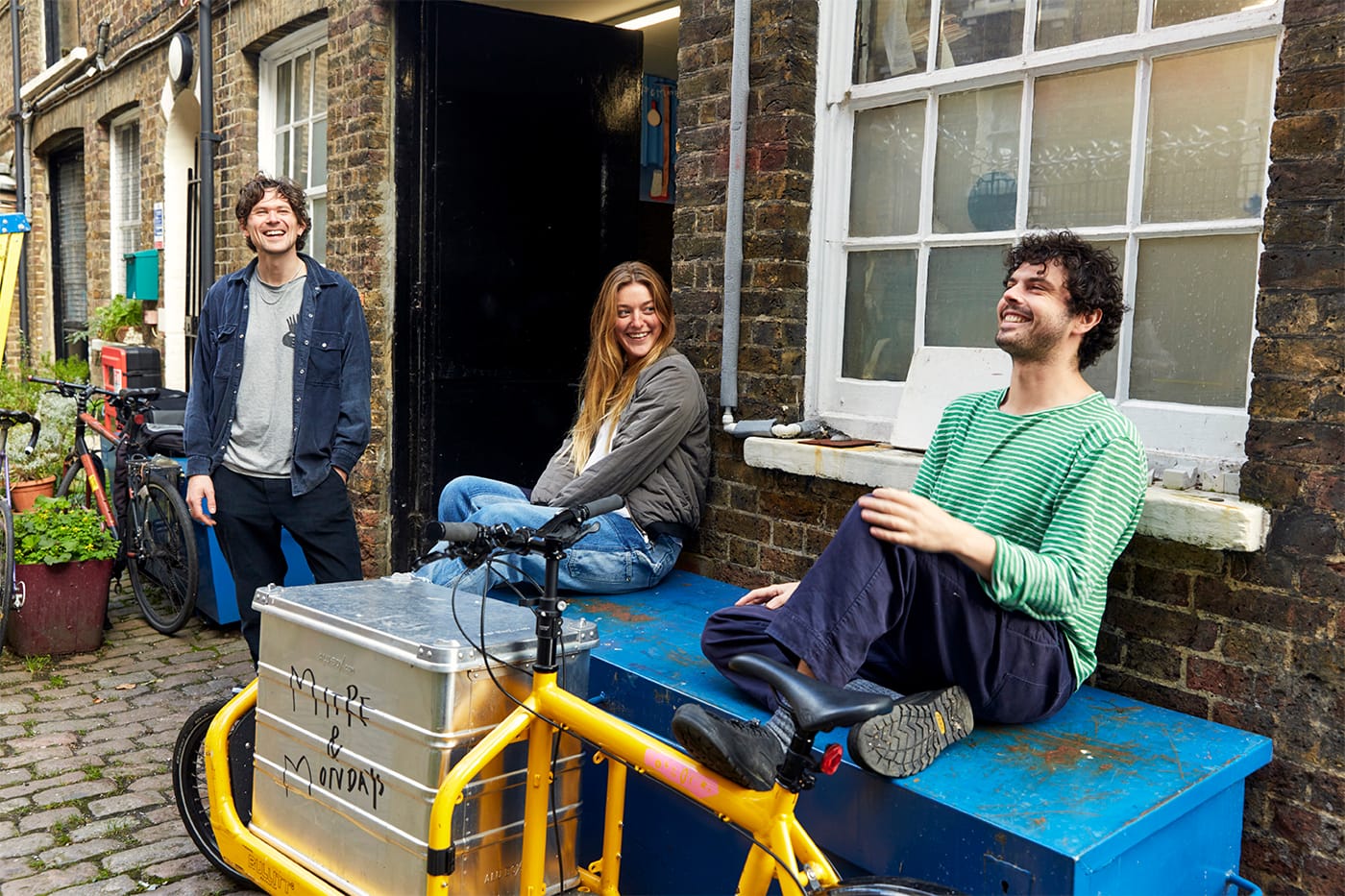
Photo by Aaron Crossman For Hypebeast
“We want to be remembered as being very ambitious when it comes to pushing the circular design narrative,” says Josef, who started Mitre & Mondays alongside Finn after they had both graduated with a degree in sculpture from Brighton University. A year or so later, they were joined by Freya, who came equipped with a background in architecture. “I couldn’t bear the [slow] pace of architectural projects, but also the fact that it’s so disconnected from the kind of initial idea,” she says. “I was really interested in the way that the guys were practicing what they preach, but in a very instant way.”
We speak ahead of a big moment for the Mitre & Mondays – they are about to unveil their second space designed for Atelier100 – and the three of them are dialing in from their east London studio, which is fittingly filled with materials and projects in process. Our conversation meanders from the importance of experimentation, through to the limitations of being a self-employed designer – but always comes back to this idea of impact and legacy. 1 of 2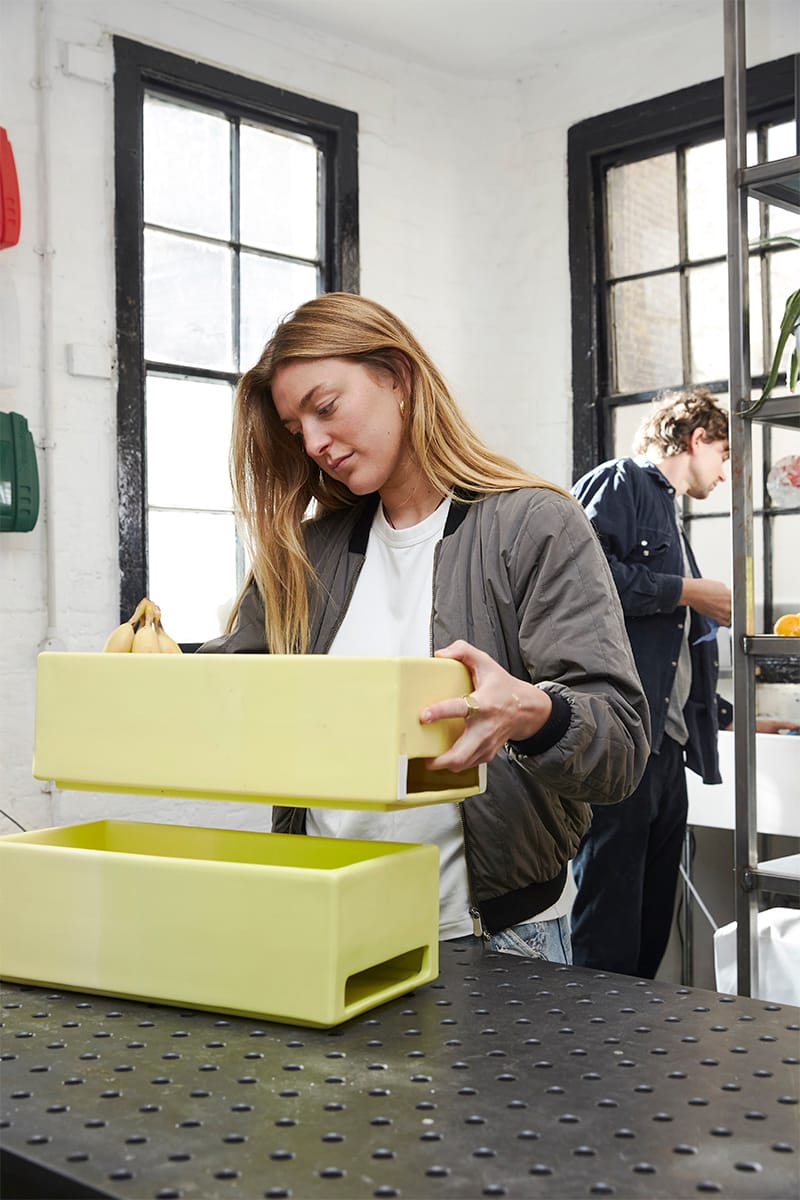
Inside The Mitre & Mondays Workshop2 of 2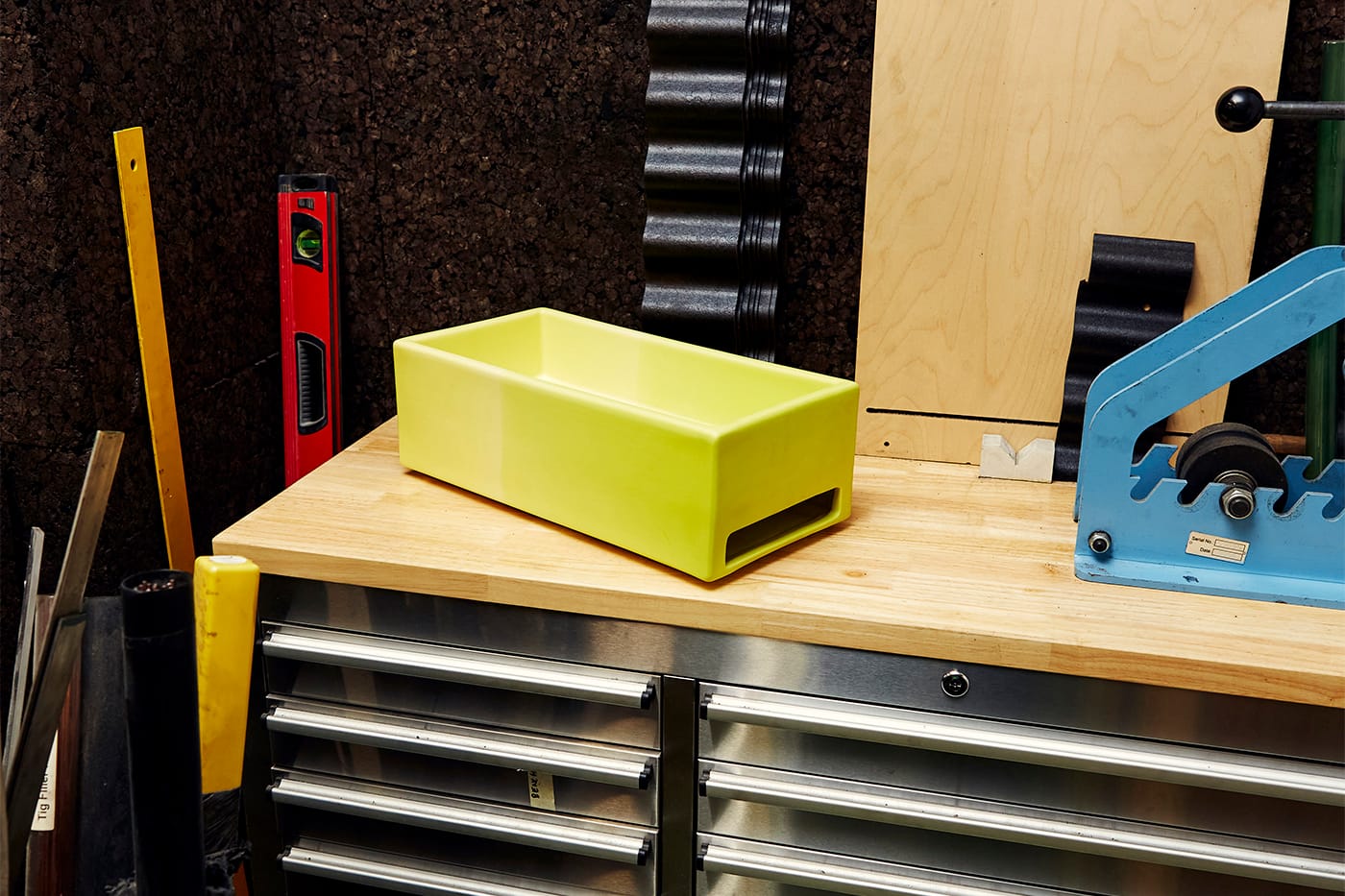
Inside The Mitre & Mondays Workshop
And while many designers are having to shoehorn the seriousness of sustainability into their existing body of work, it’s baked into the very foundations of Mitre & Mondays. The studio started out life as collaborators on bigger architecture projects, where they would create bespoke elements. “The architecture projects we were working on allowed us to always have off-cuts of materials in the workshop,” Josef said. Using these waste materials, they conceptualized a furniture range named “Batch”, and would release a new piece on the first Monday of every month. “It was an exercise in flexing our own sort of design, aesthetic, and thinking,” he adds.
“The way people interact with the objects overrides any sort of aesthetic language for us.”
While in the middle of producing this collection, Josef received an unprecedented message from his dad, pointing him in the direction of an article announcing a new grant for London-based creatives. “It was the first time he’d ever taken any real interest in what I did for a living” he adds, jokingly.
The grant was being offered by Atelier100 and amounted to a maximum of £10,000 to cover a production run of a proposed design. These would then be sold as part of the Atelier100 collection. “They were trying to invite people who were thinking in a different way about furniture and objects,” Finn adds. According to the designers the main benefit — in addition to the funding — was the practical sales and pricing advice they received through the mentorship. “It’s really hard to make things in a unique way, while also being viable form from the workshop, and then be retail ready for an affordable price,” Finn continues.
Across the course of the year-long partnership, the group created “London Cobblestone Floor Light”, which was made using materials from around the city, including — you guessed it — a piece of London cobblestone. The piece exemplified the Mitre & Mondays approach and gave newcomers a good glimpse into their studio’s guiding principles. 1 of 2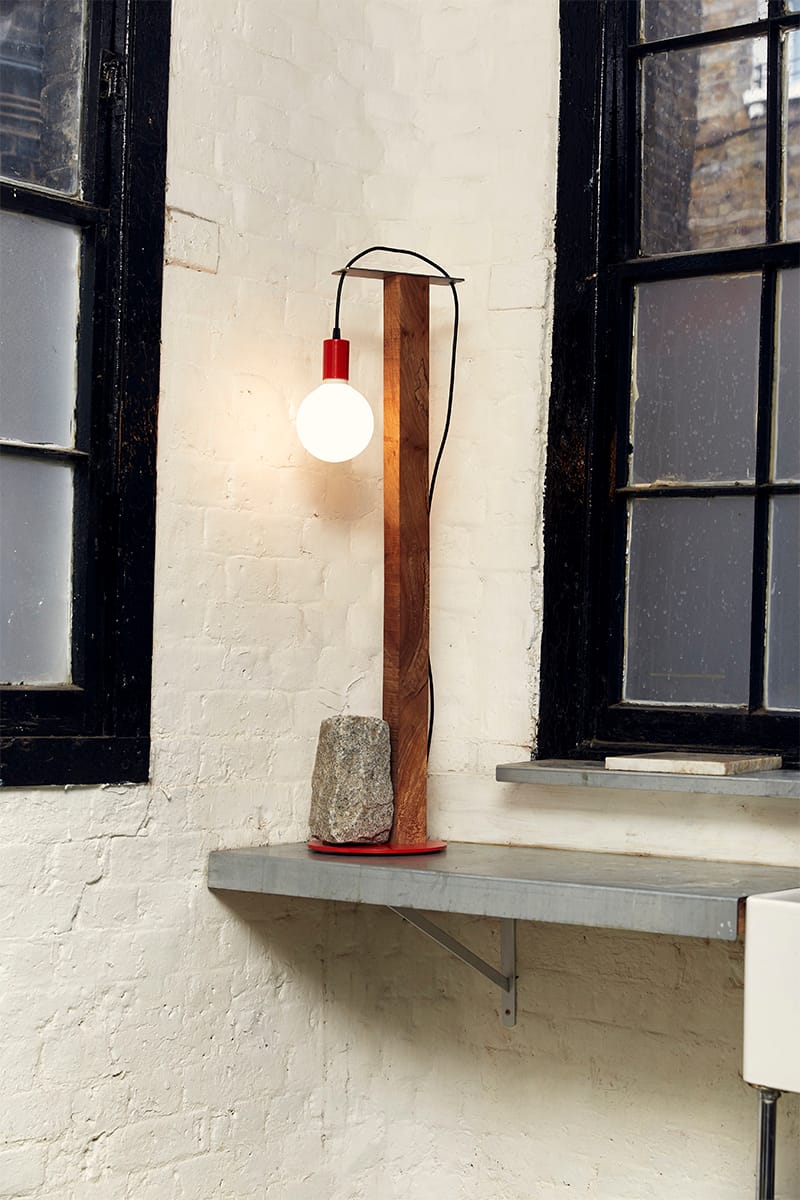
The London Cobblestone Floor Light2 of 2
The London Cobblestone Floor Light
A year on, the partnership has evolved into a longer-term collaboration concerning the interior design of Atelier100’s pop-up stores. First used for the Hackney shop, the dismountable and entirely reusable design will now relocate to a space on Neal Street for the Atelier100 Winter Holiday Shop, opening November 30th. “Our starting point was a London market,” Freya said. “We took those kinds of shapes, and we abstracted them to make them appear like bigger awnings with different kinds of angles that you wouldn’t expect.”
Unlike many designers, the legacy Mitre & Mondays aims to leave behind isn’t physical works, stuck in place for decades to come. Their way of working hopes to inspire new systems, and new ways of seeing design. If anything, a lack of permanence is essential.
“Our decisions are made with the end of life of materials in mind,” Freya says. “We don’t want to kind of manipulate things in a way that then can’t be taken apart or turned into anything else, and the way people interact with the objects overrides any sort of aesthetic language for us.”
“It’s designing for disassembly,” Josef adds.
From November 30th, pieces from Atelier100’s Drop01 and Drop02, as well as some special collaborations will be on sale at the winter store in London’s Covent Garden.
Source: Read Full Article
